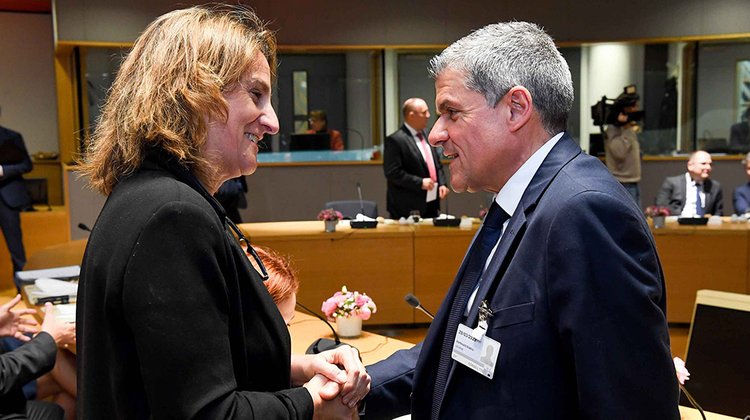Energy Minister: Potential for regional cooperation in hydrogen transport in the Eastern Mediterranean
07:56 - 29 March 2023

Energy Minister Giorgos Papanastasiou drew attention to the potential of the Eastern Mediterranean region to contribute to the diversification of the European Union’s energy sources, during its transition from natural gas to new renewable gases and hydrogen, during the Transport, Telecommunications and Energy Council of the EU which met in Brussels in its Energy Ministers configuration.
Member States reached an agreement on the Council's general approach regarding the package of proposals on natural gas and hydrogen, which aims to facilitate the penetration of renewable and low-carbon gases into the energy system, but also to enable the shift away from natural gas to allow these new gases to contribute in efforts for achieve climate neutrality by 2050.
In his intervention on 28 March, the Energy Minister said that Cyprus agrees with the proposals included in the package, adding that this is a very important piece of legislation that is expected to help Member States meet the targets set at the EU level for climate neutrality.
Papanastasiou highlighted in particular the fact that this package provides the opportunity to promote hydrogen interconnections between Member States and third countries through the creation of regional partnerships.
The Energy Minister also referred to the potential of the Eastern Mediterranean in contributing to the diversification of energy corridors and sources and, by extension, to the EU's energy security. Finally, he noted that the package takes into account the specificities of Cyprus as an energy isolated and emerging market.
During an intervention in the debate regarding the Commission’s proposal for the revision of the EU’s electricity market design which was made public on 14 March, Papanastasiou stressed the need to take into account the specificities of small isolated systems. An important objective, he stressed, should be to reduce and stabilise electricity prices to benefit consumers.
Member states also reached a political agreement to extend a Council regulation on a voluntary reduction of natural gas demand by 15% ahead of winter. The target will be maintained until March 2024.
In this context, Papanastasiou thanked the Swedish Presidency for recognising the specificities of the Member States when implementing gas demand reduction measures. Cyprus does not use natural gas.
The agenda of the meeting also included the EU's preparation for the next winter, Denmark's proposal on the impact of the Nature Restoration Regulation on energy production and development, as well as Greece's proposal on the need for an EU electricity grid capable of sustaining and accelerating the green transition.
Papanastasiou welcomed Greece's proposal, making particular reference to interconnections with third countries as a tool for the transfer of energy from renewable energy sources, such as those from the Eastern Mediterranean to the Balkans.
Finally, the Energy Ministers had a working lunch with Ukrainian Energy Minister German Galushchenko with whom they discussed the latest developments in the energy sector in Ukraine.
(Source: CNA)

